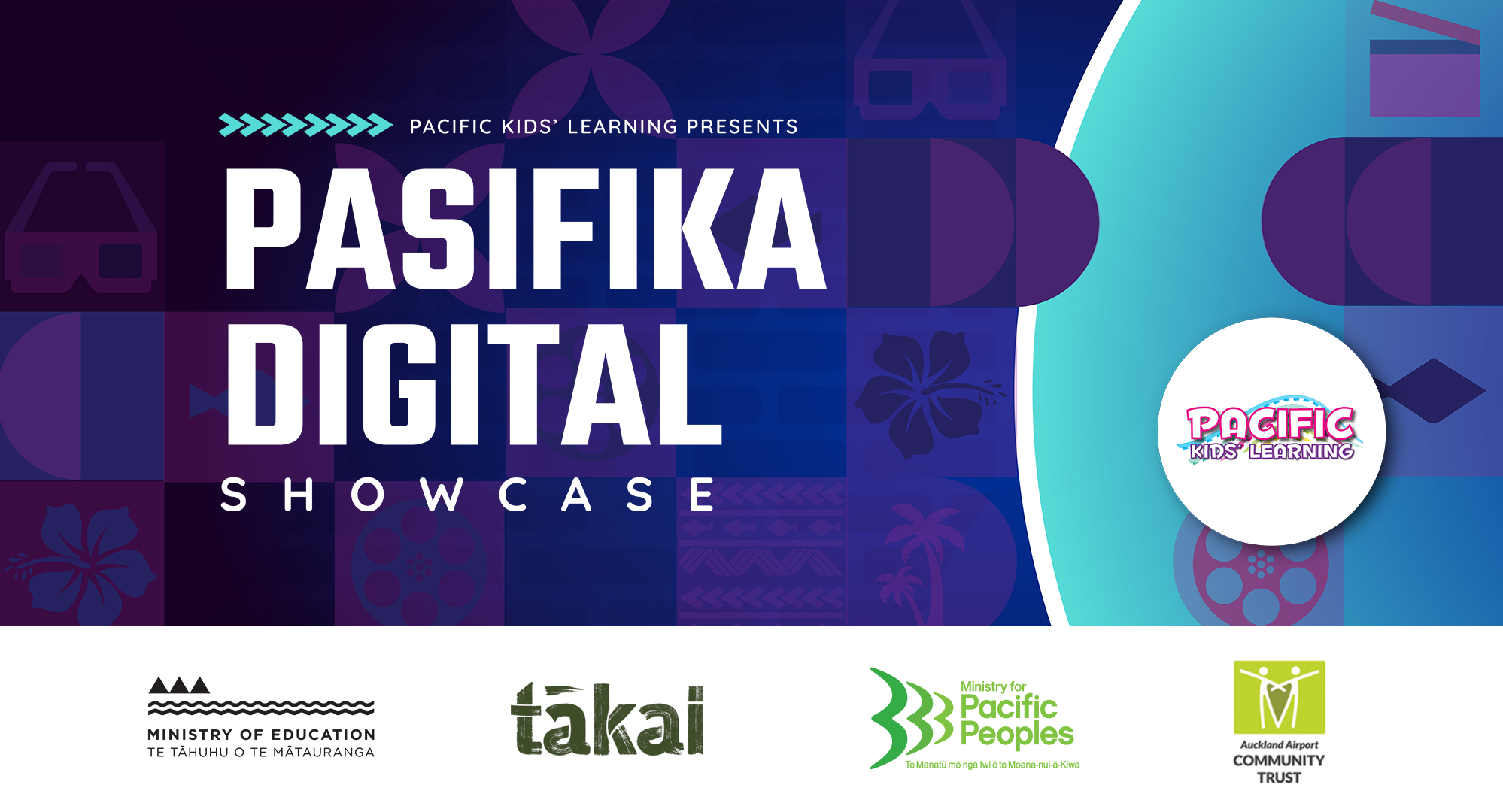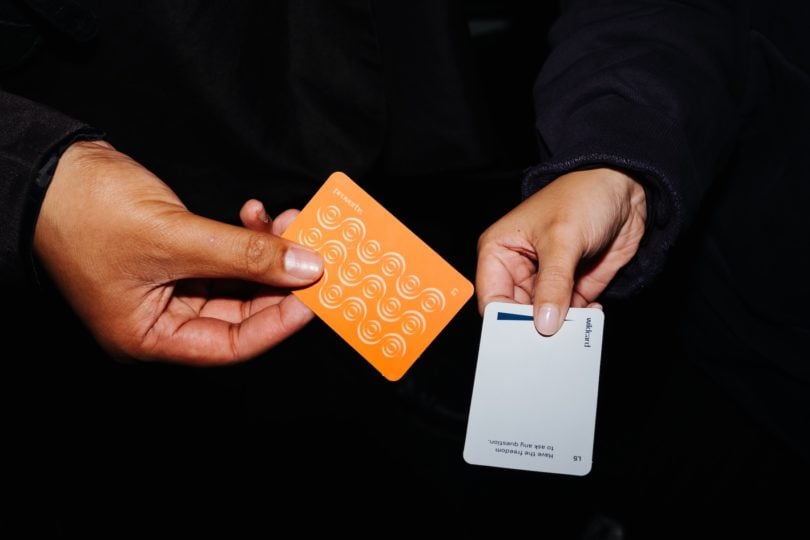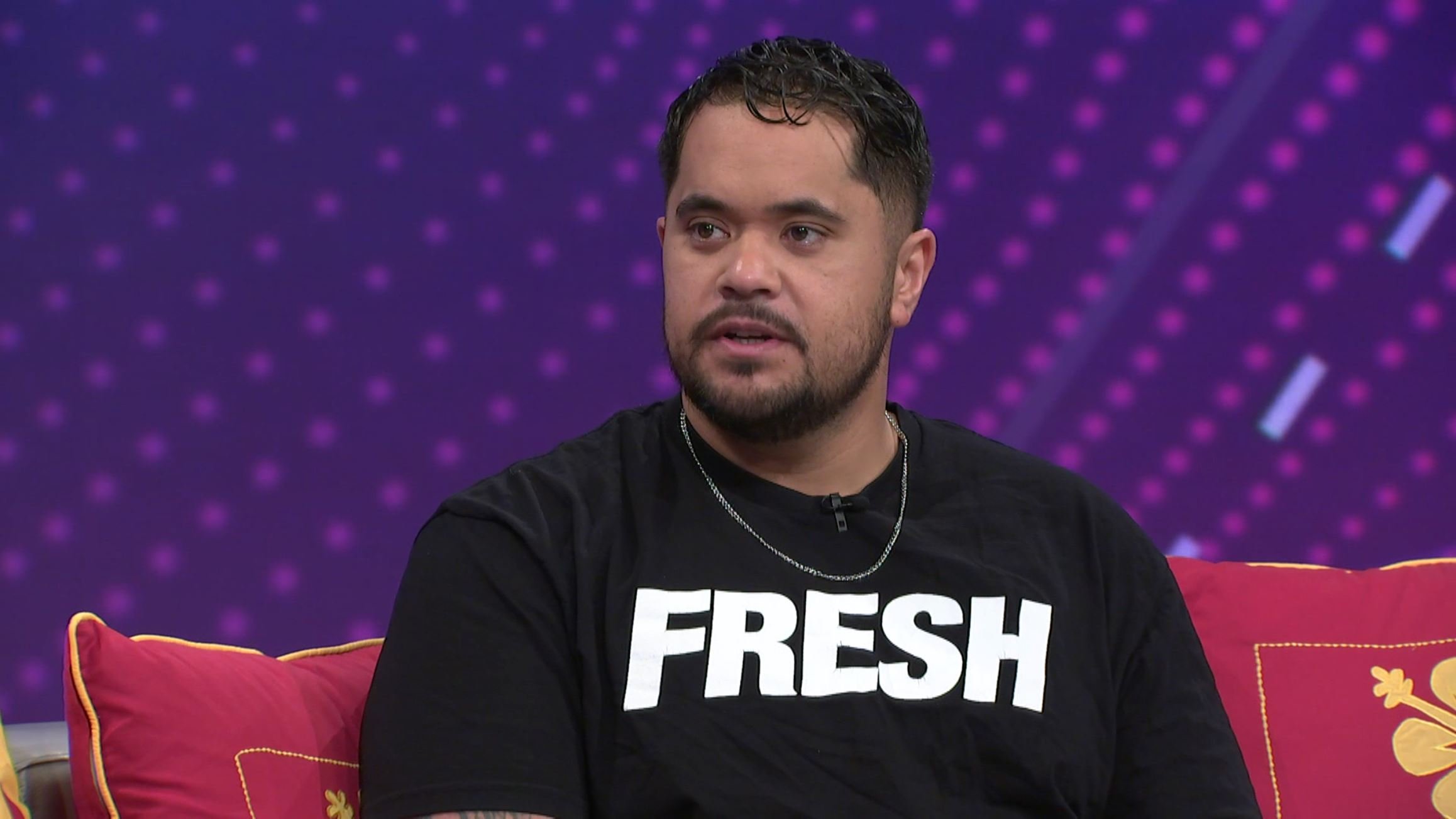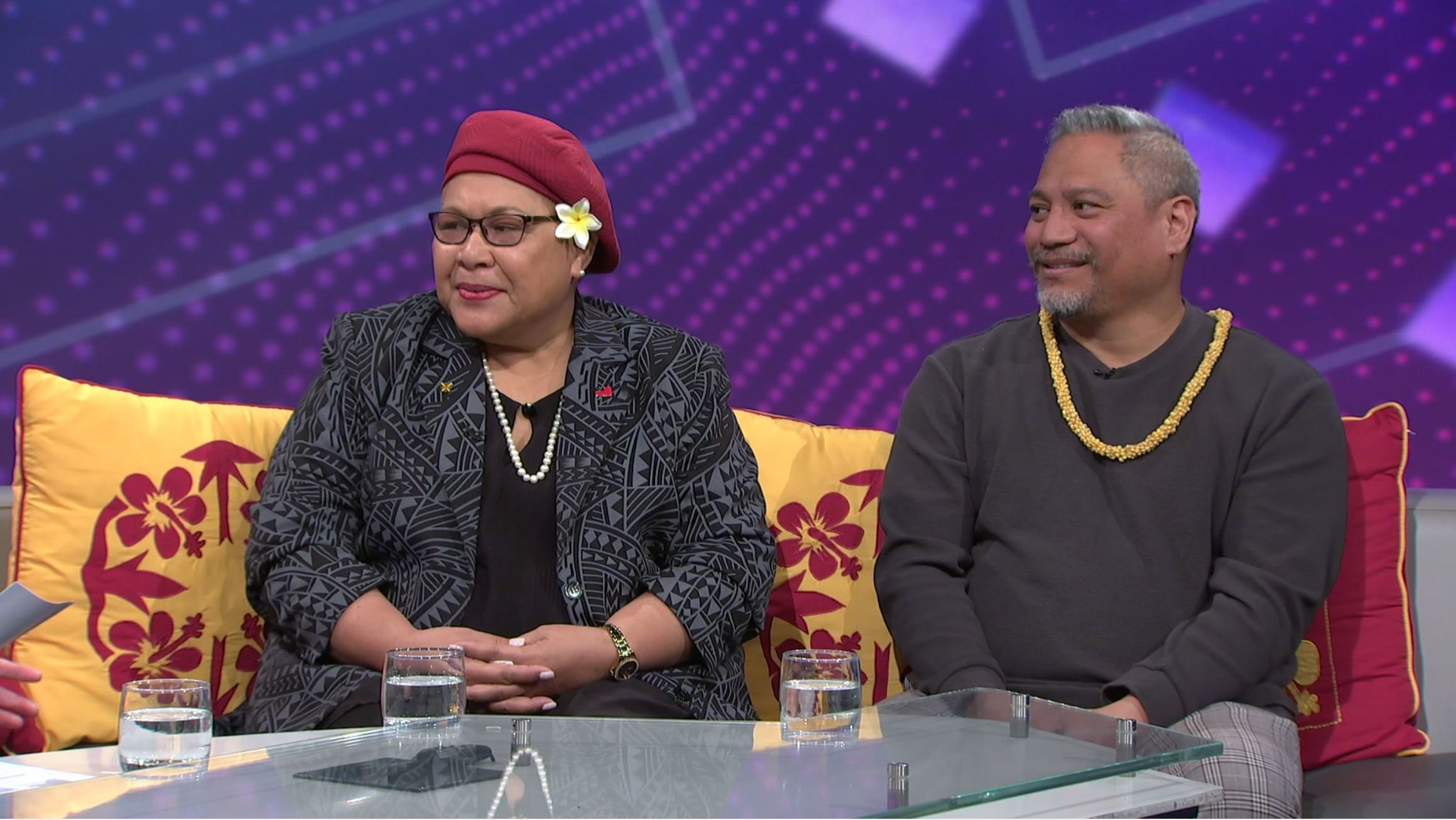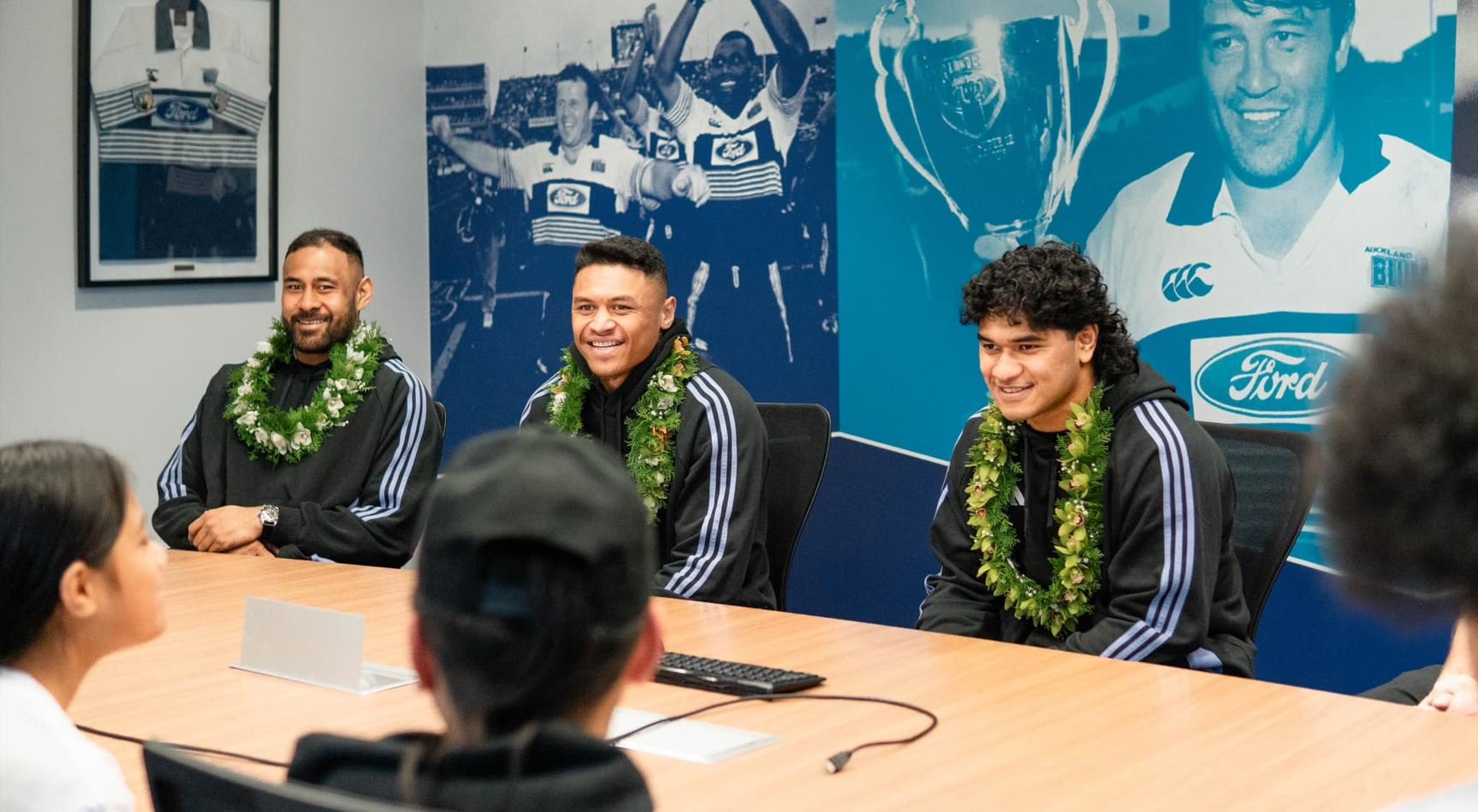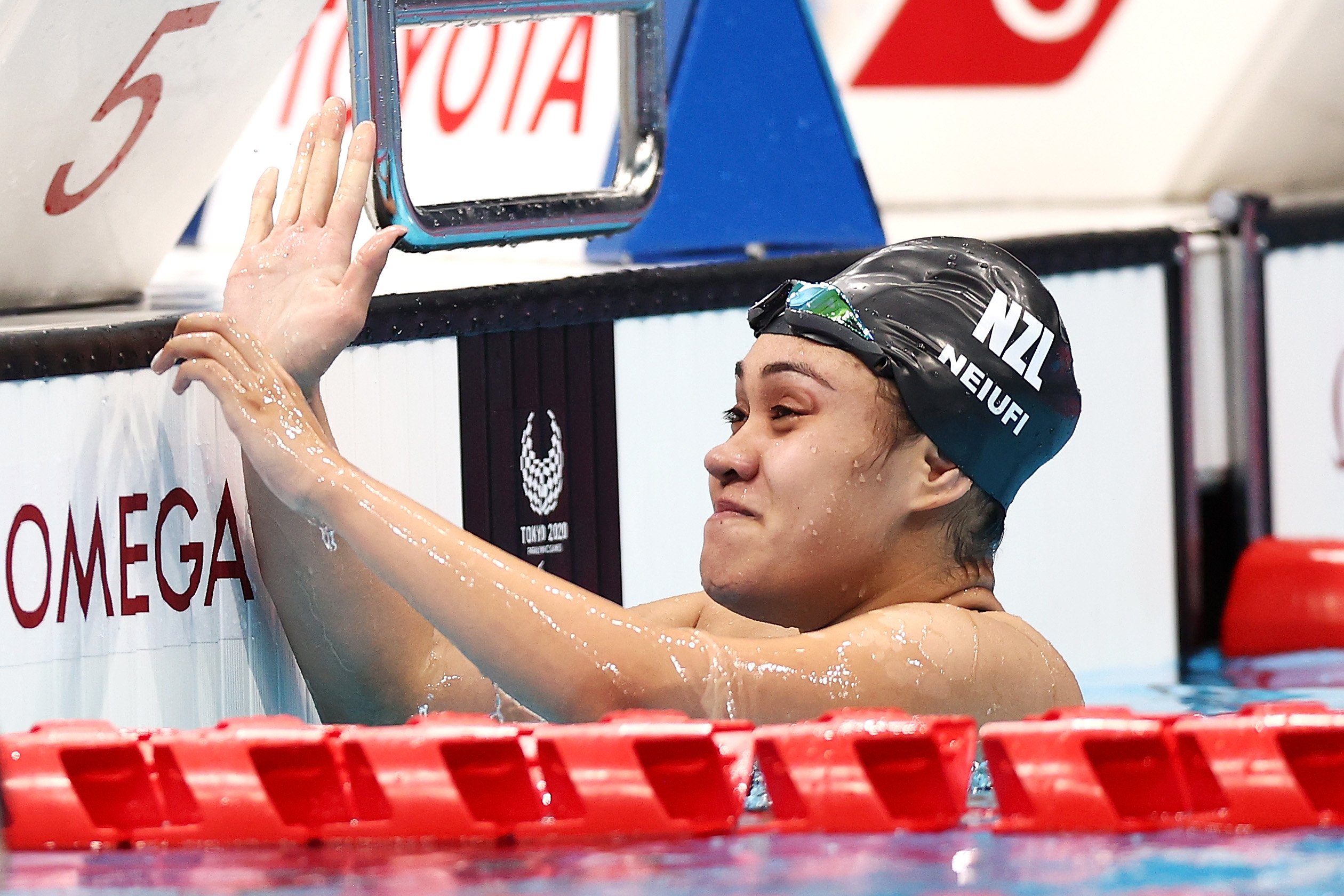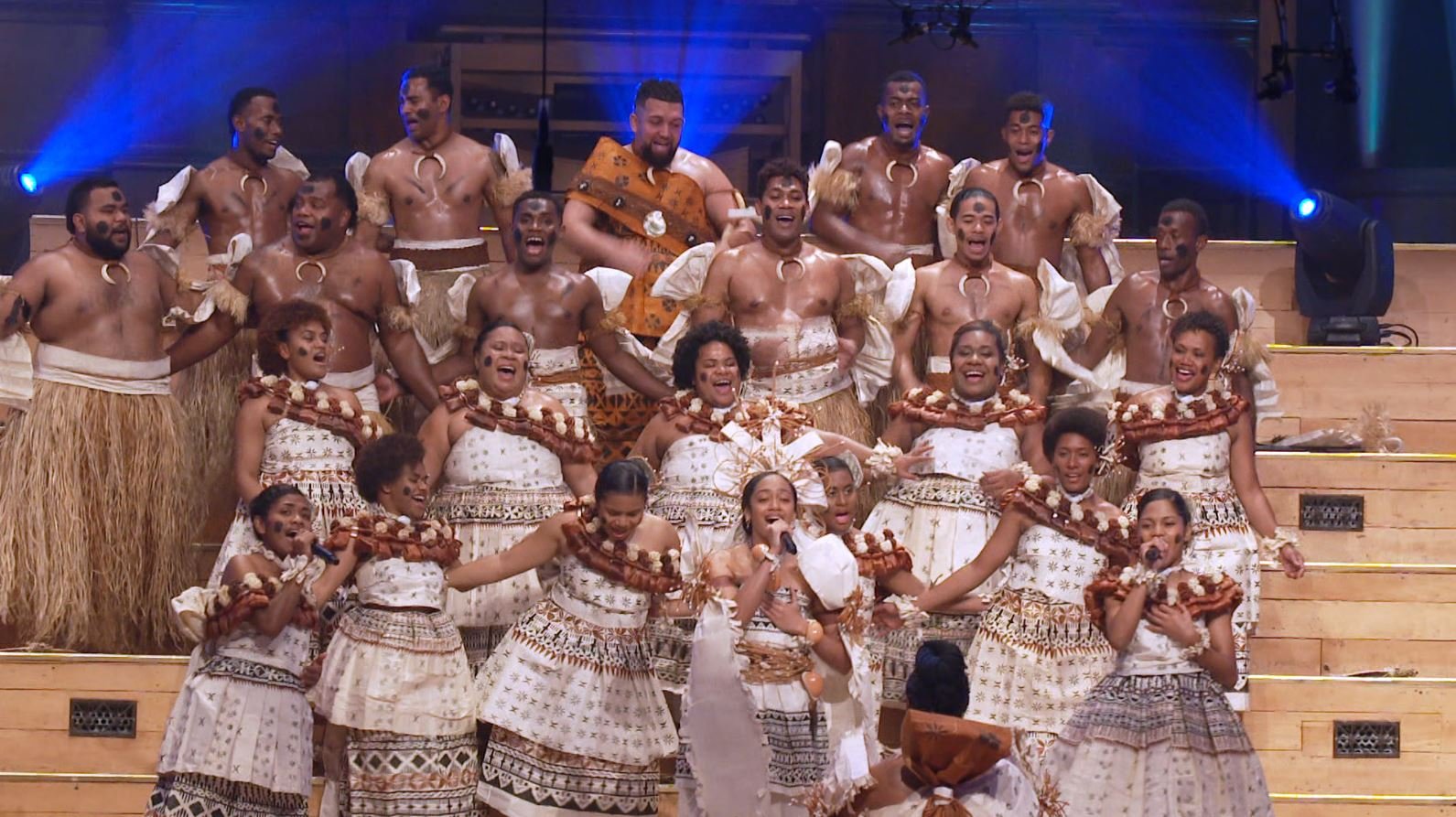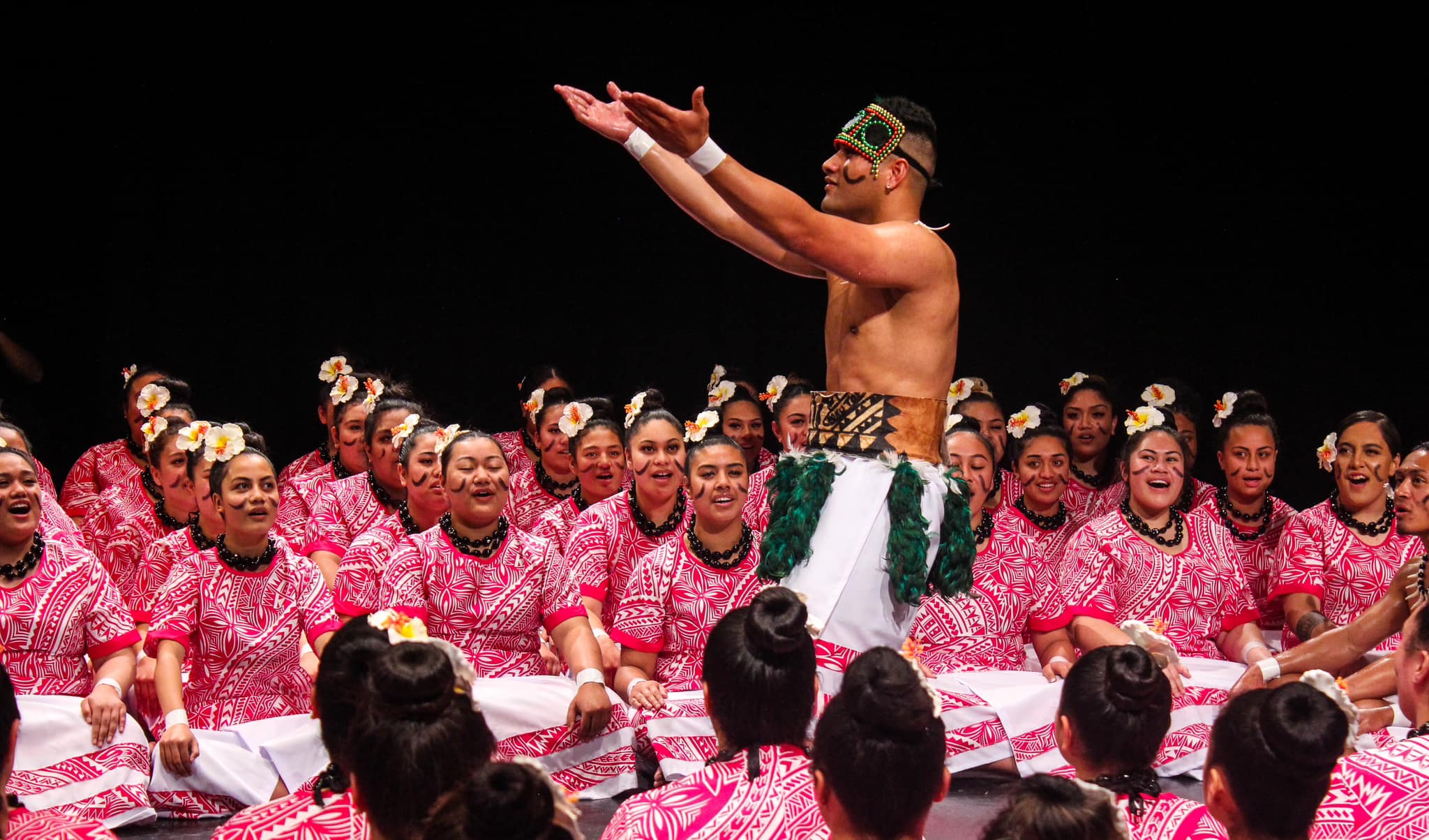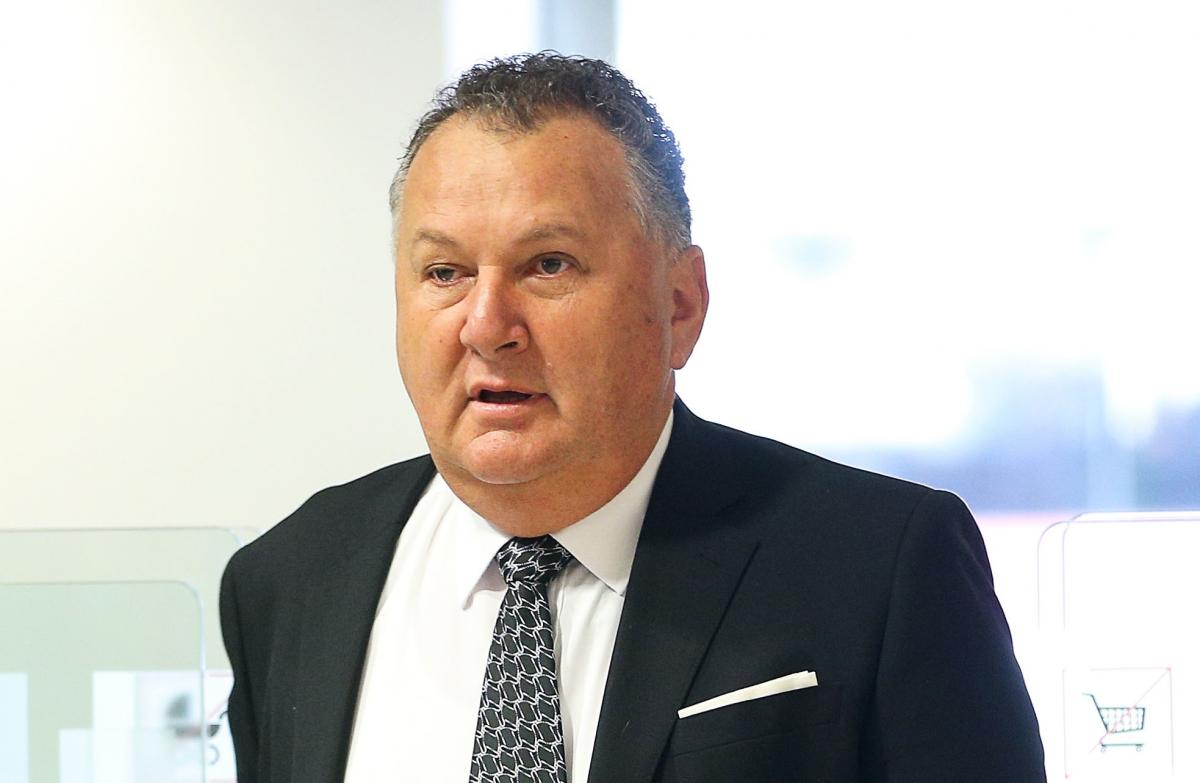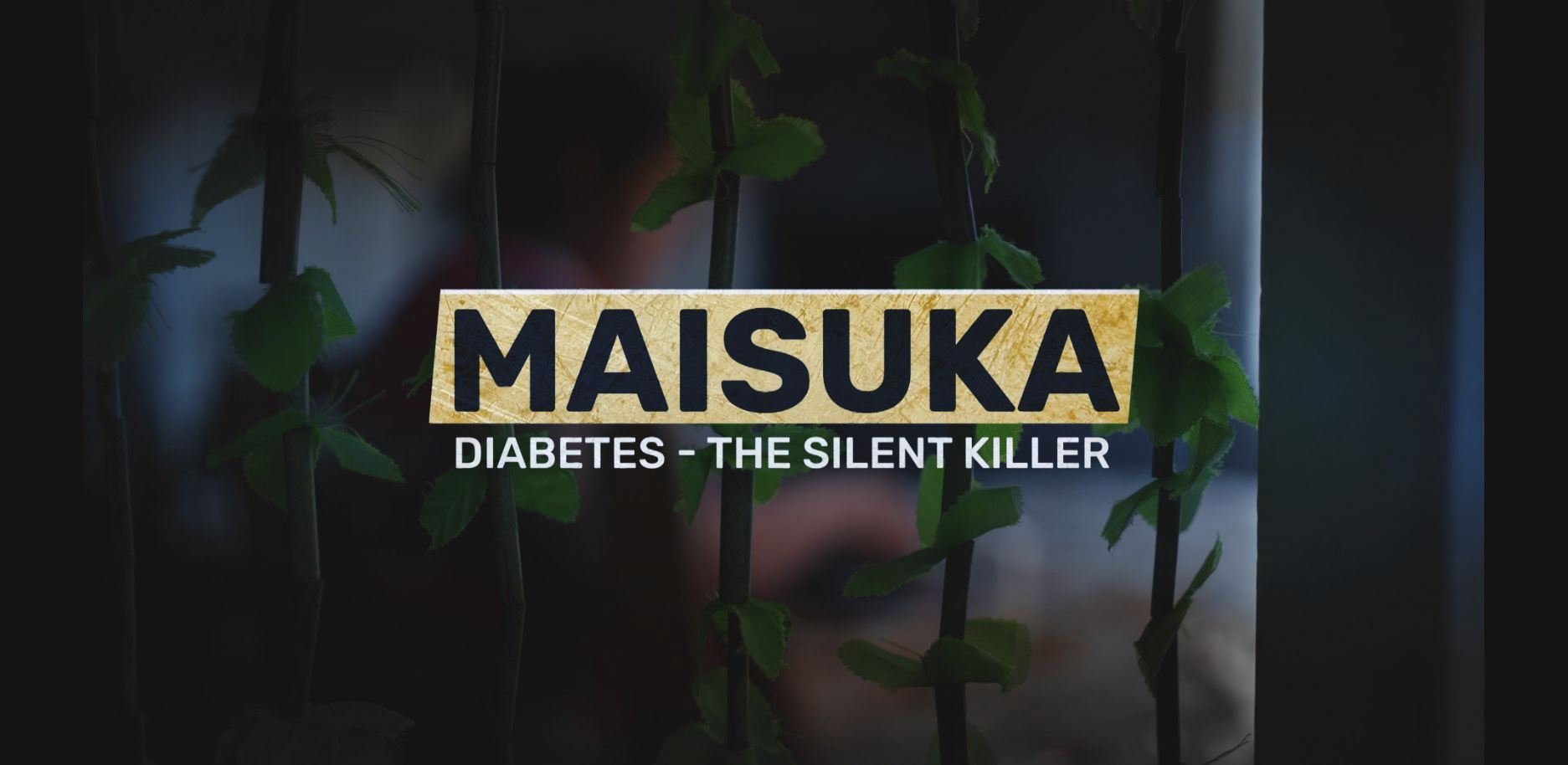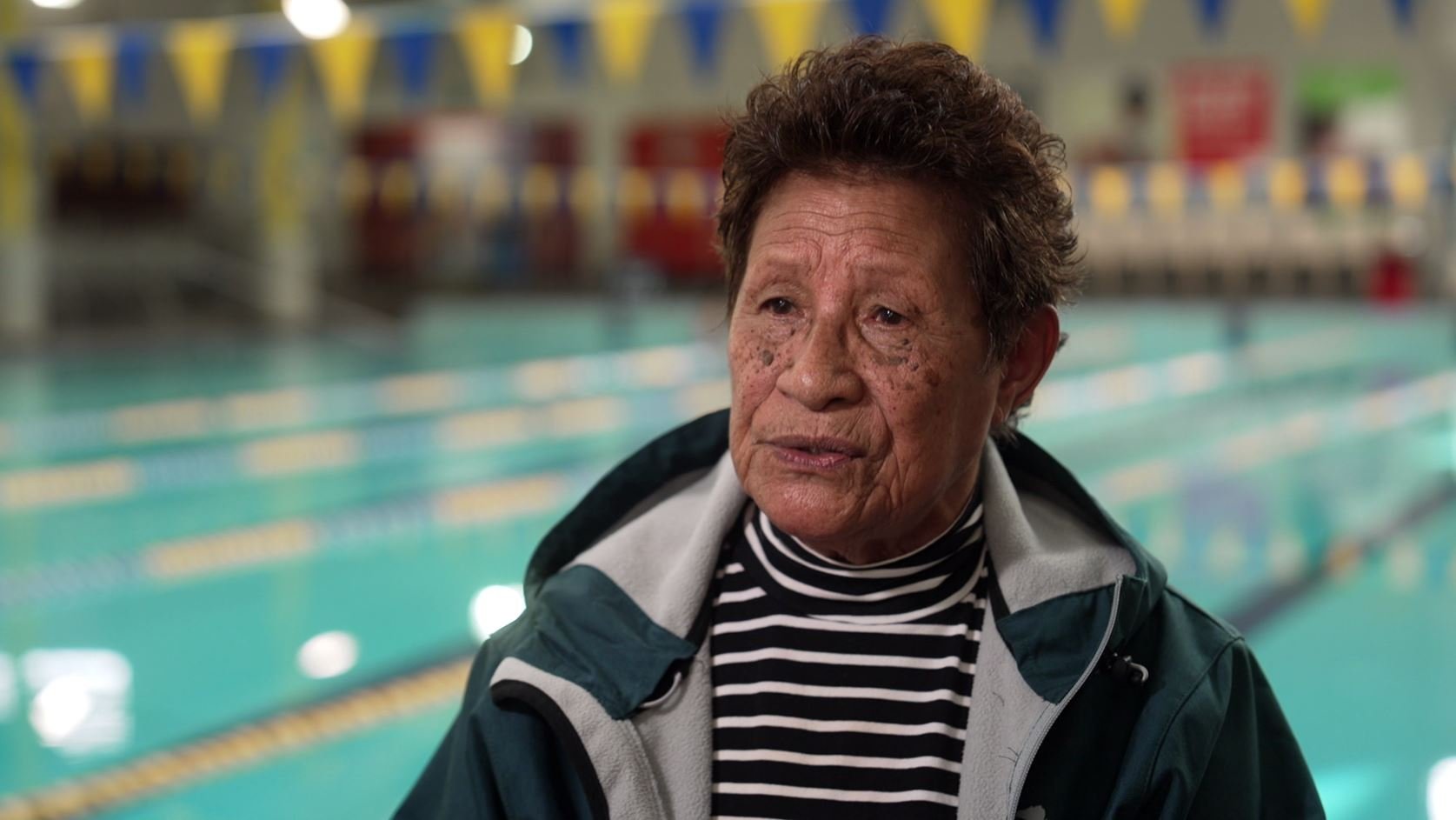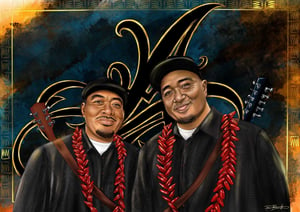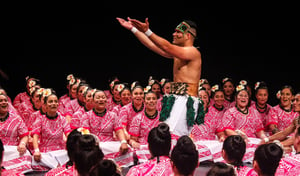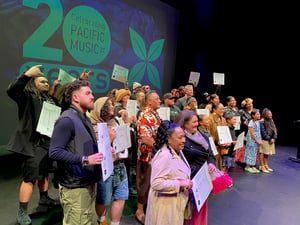Public Interest Journalism funded through NZ On Air
Tongan-Niuean-Samoan Leki Jackson-Bourke has been a rising star since writing a play with classmates in Year 13 at Marcellin college. These days he’s an internationally touring performance artist and playwright. He has five full plays and many awards and residencies under his belt, including 2017 Best Newcomer Theatre Award, and the IIML’s Emerging Pasifika Writer in Residence.
His achievements are even more dazzling considering he says he struggled with English in high school. Perhaps that’s why, when he got an invitation from Ann O’Brien of the Auckland Writers Festival to become their second Pacific curator, his first feeling was imposter syndrome. AWF is the largest festival on the Aotearoa literary scene, attracting crowds of 74,000+ people in pre-covid years.
Here Leki talks to Simone Kaho about how it felt being part of the festival curatorial team; dealing with microaggressions, yet also being met with curiosity and support.
Can you tell us a bit about the venue we’re in right now.
So this is the Mangere Art Center. This is in my hometown in Mangere and I love coming here because there’s always something on every week. There’s like a show or performance. I often use the space with my friends. We create in here, we workshop, we perform, I’ve written a few scripts.
I feel inspired being here because so many different artists and so many different people from our community come in and out of this building. I feel like we own this space, like, you know, and I don’t feel that anywhere else in any other theatre I perform in
How did you get into writing, was it something you were keen on at school?
I had no intention of being a writer and I had no desire, or passion to become a writer. I guess like, because I felt dumb in high school, I was in the like low English class. I struggled with English. But I always had a passion for storytelling, not necessarily writing, but storytelling.
I remember in Year 13, when our school teacher wanted us to perform this play and we were like, ‘Can we just do our own play? Can we do a Pacific play?’ But we’d already done Niu Sila, like a heap of times. Oscar Kightley’s play with David Armstrong. That had been thrashed at our school. Our teacher was like, ‘Oh, there’s nothing else for you guys to do’. And we’re like, ‘We can write our own one’.
And we did. We did.
Tell me about getting the invitation from the Auckland Writers festival to curate. How did that go?
So Anne approached. Anne O’Brien from the Auckland Writers Festival. First through email and then we had a zoom catch up.
At first I didn’t feel like I was worthy of being the curator. I was like, ‘I don’t think that’s me, I’m not a curator’. I just felt imposter syndrome. But when I met with Anne, she was pretty, open about everything and what she needed and I was like, ‘Okay, I can do that. I can deliver all that.’
Could you give us a rundown of the sessions you curated?
I curated four sessions for the festival. The first was Inky Pinky Ponky with myself, Amanaki (Preston-Scott) and Victor Roger. The second was speaking in tongues with Dahlia Malaeulu, Lynn Lolokini (Ikimotu Pavihi). And that was facilitated by Richard Pamatatau.
The third one was called Black Forest Poets of the Pacific and it had Zech Soakai, Aigagalefili Fepulea’i Tapua’i and Tusiata Avia. And then we finished on the Naked Samoans panel, which was facilitated by John Campbell.
The best thing is that they were all different. They represented so many different spaces, community genres, age groups, um, even like the diversity within the Polynesian and Pacific community itself.
How did it feel being part of the Auckland Writers festival, as a curator?
There’s definitely this unspoken kind of energy in the air when you walk into those kinds of spaces, those mainstream spaces.
This old lady was like giving us the meanest eyes and I guess it’s because, it’s that perception of what a writer should look like or you know, what a writer is? I mean, because my perception of writers was like, I used to think of Professor Dumbledore from Harry Potter.
When I walk in, they think I’m like the usher or something, you know, or the coffee guy.
And then I’m like, ‘Oh, hi, I’m the curator for the session’. And then they’re like, ‘Oh, okay, sorry’. So it’s nice to be in those spaces of influence not be apologetic about it either
What was it like having curatorial authority, did that mean you could flex to look after the writers you invited in?
When I put my program together, I wanted to make sure that all my artists and everyone from my community who I was bringing on board was getting paid the same amount. And so I was like – I’m gonna curate panels because then they’ll all get the same amount as the palangis do. And the festival was quite supportive of that.
I was like, ‘We ain’t doing koha. We’re doing proper payments’.
You mentioned how at home you feel in the Mangere Arts Centre, how did it feel in your session, looking up at quite a different crowd?
In my session I felt anxious. Like I walked in and I was like, ‘Oh my God, everyone’s old and white and like, they’re not gonna get it.’ But, it was actually quite nice because they were like responding to things I didn’t think they’d respond to. And they were asking questions.
They were obviously curious about what we do and what kind of stories we tell. I felt the support by the end.
I know there were some low points too. You mentioned on the phone you were with a writer who was asked ‘Are you in the right place?’- when they were trying to collect a writer’s pack. How did you feel at that moment?
When someone said ‘Are you in the right place?’ – like we just laugh about it now, cuz it’s funny, it’s hilarious that you think we’re not as competent, but I’m like, ‘I’m an award-winning artist I deserve to be in this space.’
I know my value and my worth and my contribution to this space. And everyone else that I’ve programmed on this journey with me, deserves to be here as well.
Even though we’ve been given the microphone and the platform to have voices in these spaces, there’s still a lot of fighting we have to do to be valued and recognized.
Yeah, I can see how much your energy changes, from when you were talking about how it feels being in the Mangere Arts Centre, to talking about that encounter.
It is what it is. We can criticise and we can tear down all these spaces, but at the end of the day, if we don’t tell our own stories, someone else will tell it for us. You see it on mainstream media all the time.
I hate using the word mainstream, because it implies that we’re like less or like, you know, we’re not mainstream, but hello, we’re the main bill. Like everyone overseas wants our art, everyone overseas wants Pasifika and Māori art.
We have to tell our stories before other people tell them for us, and tell it wrong.
Interview has been edited for length and clarity.

